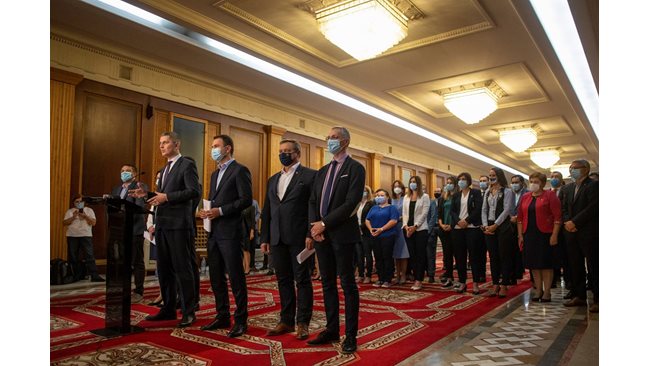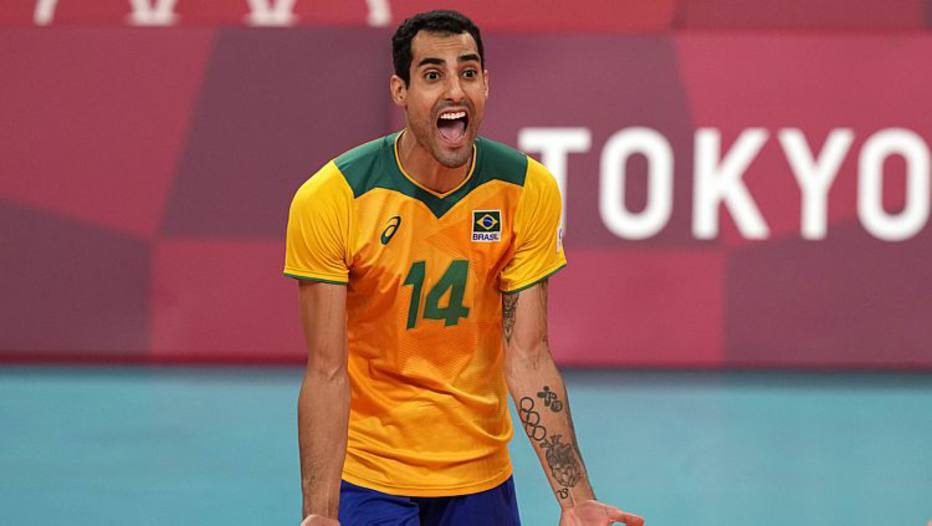–
–
SSR-PLUS leader Dan Barna spoke as party ministers resigned. PHOTO: Reuters
–
After the Prime Minister fires the Minister of Justice, his coalition partners submit a vote of no confidence
Romania’s ruling coalition is falling apart after one of the government’s smaller partners announced it was withdrawing its ministers. The centrist Union for the Salvation of Romania party has demanded the resignation of Prime Minister Florin Katsu.
The split in the coalition came in early September after the dismissal of Justice Minister Stelian Ion, a member of the Union for the Salvation of Romania – Party of Freedom, Unity and Solidarity. (whose abbreviation in Romanian is SSR-PLUS – b.r.). He was
removed because
disagreement with the Prime Minister
for financing infrastructure projects in the municipalities.
Romania’s ruling coalition consists of the National Liberal Party (NLP), SSR-PLUS and the Democratic Union of Hungarians in Romania (DSUR). The rift between the Liberals and the reformists of the SSR-PLUS was caused by a controversial investment project, which Justice Minister Stelian Ion refused to support. The party of ethnic Hungarians sided with the prime minister.
NLP has proposed an investment program named after the famous Romanian scientist and engineer Angel Salini, which provides
allocation of 50 billion lei (approx
10 billion) to local authorities
for infrastructure projects for a period of 6 years. The program has been criticized by SSR-PLUS, who say it closely resembles the National Program for Local Development, initiated by the former leader of the now opposition Social Democratic Party, Liviu Dragnea, who has been convicted of corruption.
The reformists claim that it is a question of distributing state money to the political clientele at the local level. SSR-PLUS has few mayors, which means that they are not real beneficiaries of this program, notes TV “Digi24”.
Tensions have not abated for a week, and on Tuesday, six ministers from Romania’s smaller coalition partner resigned. “We did what we announced this morning. We registered and submitted our resignations to the Prime Minister’s Office. We are moving on, “wrote Deputy Prime Minister Dan Barna, co-chair of SSR-PLUS, on Facebook. Health Minister Joanna Mihaila, Deputy Prime Minister Dan Barna, Economy Minister Claudiu Nassui, Transport Minister Catalin Drula, European Funds Minister Christian Guinness and Science, Innovation and Digitization Ciprian Telemann have resigned.
The SSR-PLUS coalition partner demanded the resignation of NLP Prime Minister Florin Katsu, and when that did not happen, he filed a no-confidence vote with the nationalist Alliance for the Unity of Romanians.
“We decided we couldn’t
continue forward with
a prime minister who has no minimum
respect for the truth “,
said Dan Barna.
For his part, Prime Minister Florin Katsu said that SSR-PLUS ministers were behaving like “spoiled children” and legitimizing an extremist party. Asked how he would comment on the ministers’ resignation, the prime minister said “the greatest evil for Romania has been done when they have allied themselves with the Alliance for the Unity of Romanians”.
President Klaus Johannes invited SSR-PLUS representatives to talks at the presidential palace in search of a way out of the political crisis. A day earlier, the head of state also spoke with the prime minister.
To overthrow your own government with a vote of no confidence is not such an unusual practice in Romania, local media recall. In June 2017, the Social Democratic Party (SDP), now in opposition, toppled its government, led by Prime Minister Sorin Grindianu, in a no-confidence vote, to form a new, long-running cabinet with Prime Minister Mihai Tudose.
NLP has also shown in recent years that
not sides of some paradoxical
at first glance political games
In early 2020, the Liberals repeatedly proposed a failed prime ministerial candidate to provoke early elections – in the hope of securing a parliamentary majority afterwards. However, the appearance of the coronavirus surprised them and changed their plans. Thus, a cabinet led by NLP leader Ludovic Orban led the country through the first dramatic months of the pandemic.
On December 6, 2020, regular parliamentary elections were held, which did not give the required majority of liberals. As a result, the current three-party coalition of NLP, SSR-PLUS and DSUR was born, which at the end of last week once again proved its instability.
The reformist SSR-PLUS, led by Dan Barna and Dacian Ciolos, is a relatively young party that gained popularity a few years ago over the No Sentenced to Government initiative, backed by more than 1 million citizens and still awaiting a vote in parliament. After the elections in December 2020, SSR-PLUS came to power, but the frictions with NLP were no secret from the first months of rule. This time, however, the rift between liberals and reformists turned out to be much more serious – enough to cast a no-confidence vote against their own cabinet, allying with the nationalist Alliance for the Unity of Romanians, which they had previously described as an “extremist” party.
– .


